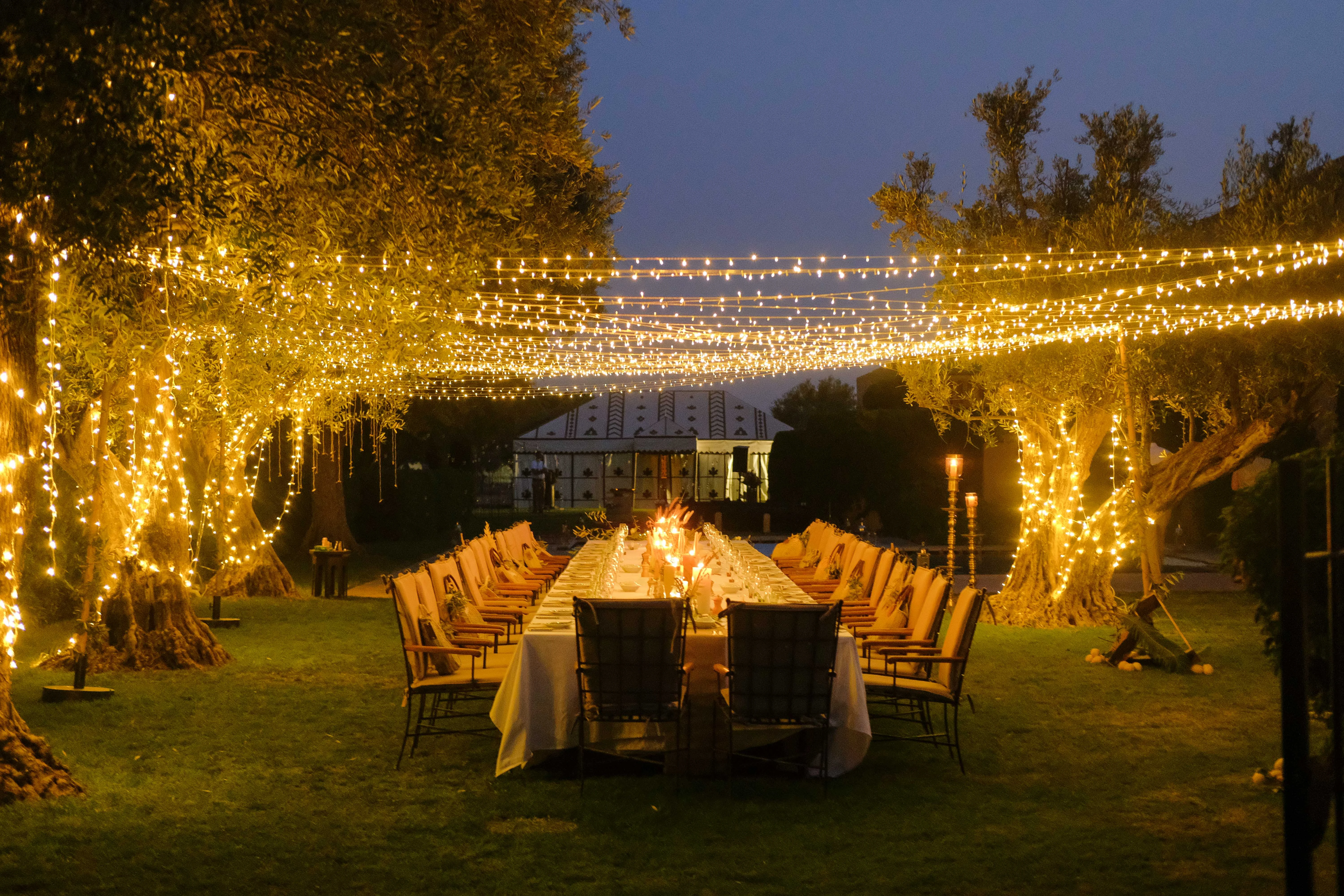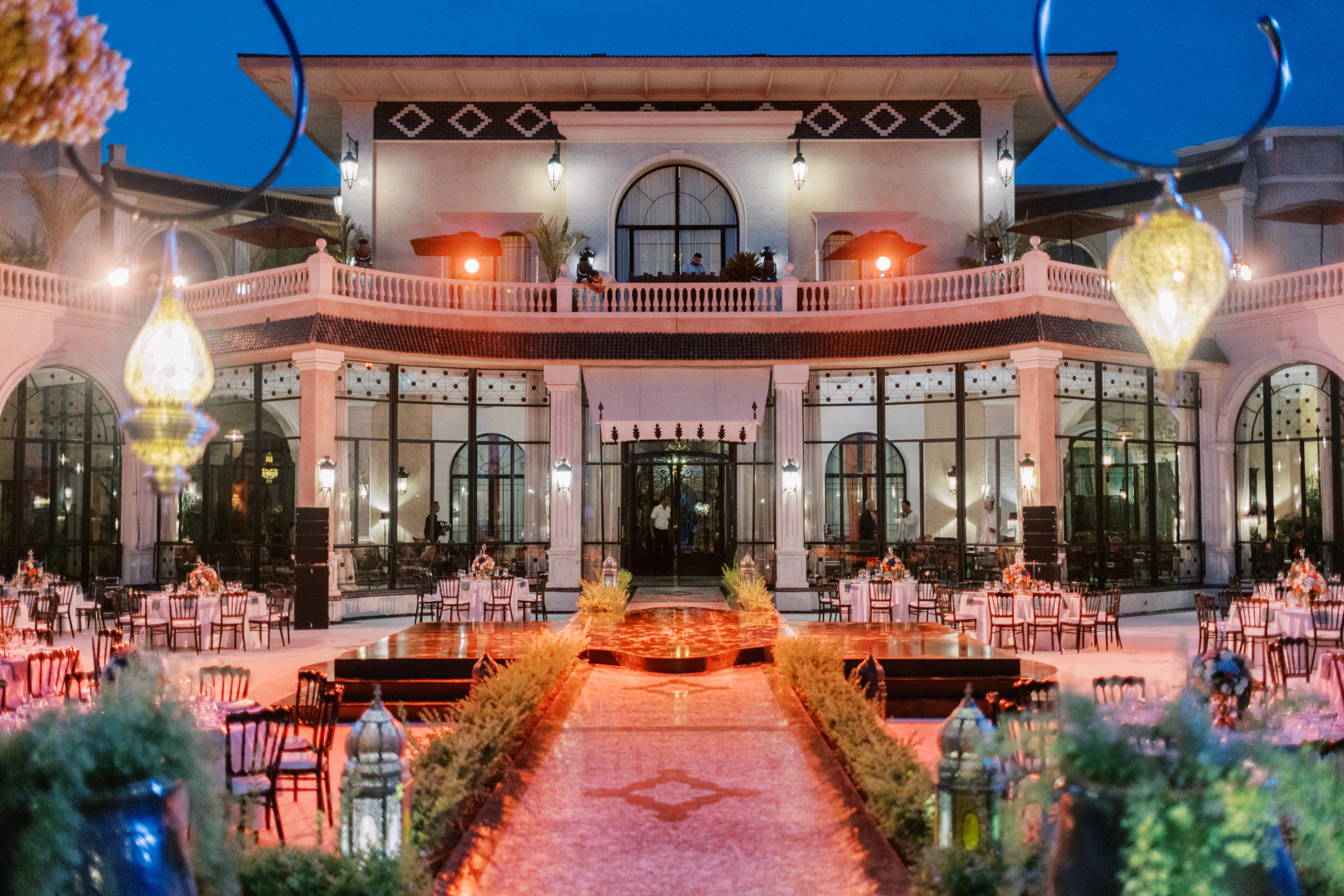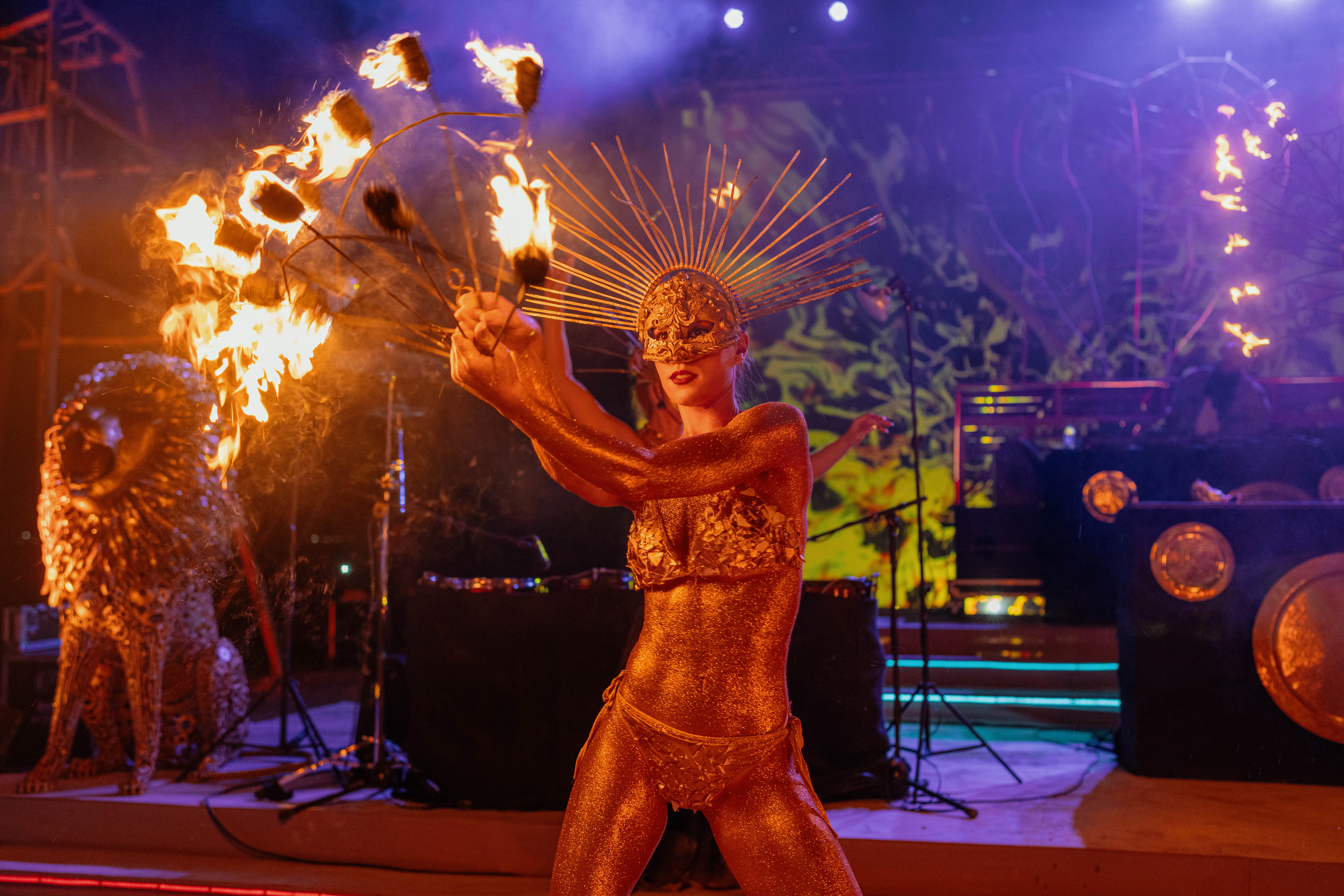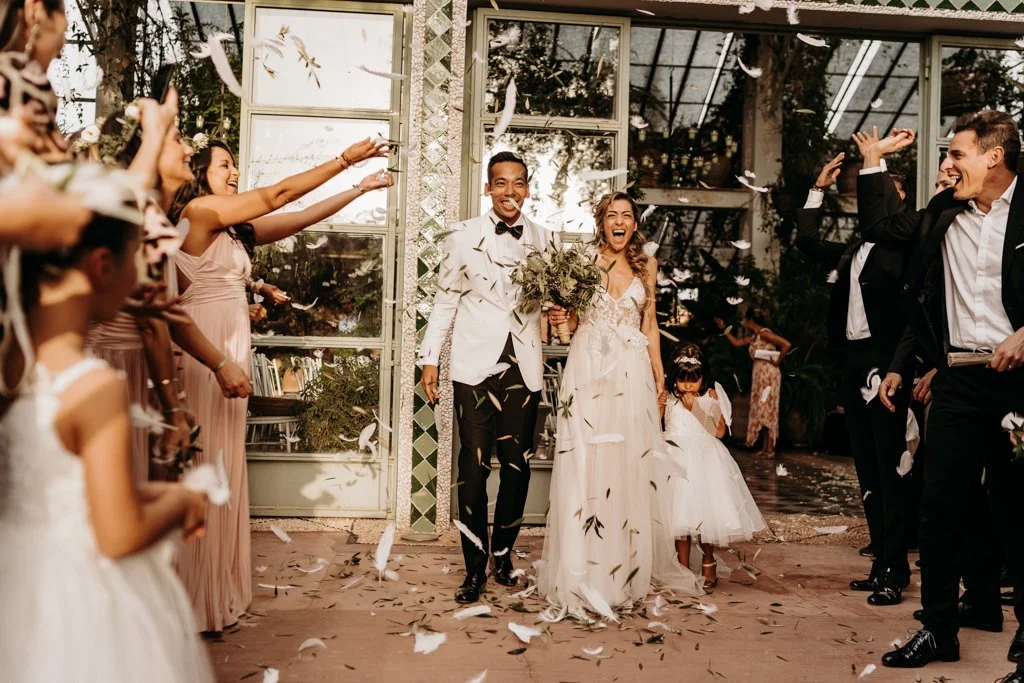Event planning requires attention to detail. Every aspect should be approached in a thoughtful manner to ensure a truly unforgettable experience for both guests and hosts. To support you in this journey, our experts at Hello Moments & Co have contributed with the creation of this comprehensive event planning guide. While reading, you will be presented with the basic aspects that should be considered when planning any kind of event. Additionally, you’ll receive tips to avoid common mistakes as well as insight on what will help make your event remarkable. Navigate the topics below or continue reading to learn more.
Event Planning Guide: table of contents
What is event planning?
Event planning is the act of foreseeing and organizing every relevant aspect of a special gathering. It includes, but isn’t limited to establishing a guest list, choosing date and venue, hiring catering services and building the event’s program.
Per our experience, the most common types of events are weddings, wedding anniversaries, birthdays and conferences. Each of these have their own set of singularities to be considered. However, all of them share 9 basic items to plan, which we will approach in detail later on this guide.
Why is it important to plan events?
Events, independently of their size, are more than the occasion itself. Both guests and hosts need a cohesive and comfortable setting where the program can be followed and the event’s goal can be achieved. For example: imagine a wedding happening in a venue that isn’t big enough for all guests or has a catering service that doesn’t offer options for guests with dietary restrictions. Although the main objective of this event isn’t to be at a big venue or eat amazing food, the fact is that these aspects contribute to achieving the goal: celebrating the union between two people while being surrounded by the ones they love. If guests or bride and groom are uncomfortable, the entire experience will generate negative memories about a night that was meant to be extraordinary. Planning events gives you time to evaluate options and foresee what everyone involved will need to enjoy the occasion and leave the room with positive memories.
When to start planning an event?
Ideally, you should start at least 6 months in advance. Although it can seem a lot of time, for major events such as weddings or corporate events it may actually be far from ideal. A shorter timespan implies less room for making adjustments and changes, which can be needed while planning any kind of event. It is also important to note the closer you are to the date you are planning to have the event, the more concessions you will have to make. It is possible the venue and catering services you’d like to hire aren’t available by the expected date. You may even have to face a lot more “no’s” than expected as people may already have something scheduled for that date. If you don’t have much time to plan an event, it is recommendable to hire a team of event planners. Their previous experience will ensure your goals will be met at the end. Additionally, their expertise will help with handling any undesirable surprises that may appear due to the lack of time available.
Is it better to hire event planners or do it yourself?
In case of smaller events, doing yourself is definitely a possibility. However, it will be key to have a lot of time available, as proper event planning is time-consuming and requires attention to detail. As the event planner, during the event you will also have to ensure guests are comfortable and the program is being followed. For this reason, it is important to note that you might not enjoy all aspects of your event as much as the guests. Therefore, in case you are at the center of the occasion, you might want to have someone else’s support to handle issues that may occur with any of the partners and services hired. Some ways to ensure a positive outcome is to inform yourself on the subject as much as possible. You can use the internet in your favor as it will allow you to get in touch with informative content such as this event planning guide. You can also complement your knowledge with short courses and videos from experts. If you decide to plan an event yourself, a pro-tip is to always check referrals before hiring any services. Second-hand experience will help you avoid problems. Make sure to reserve some time to do your research on any service you may have to hire. In case of bigger events, it is recommendable to hire event planners. These experts already have in mind all the aspects that should be planned so your event can be successful. Additionally, they will be able to quickly identify the best service providers for the occasion considering your desires. Another advantage of hiring event planners is that you’ll have a lot more time available, as the heavy lifting will be done by these experts. If you are a very busy person or have to prepare yourself for the date, this is definitely something to be considered. In events where you’ll be at the center, such as birthdays or weddings, it is also interesting to hire professional event planners so you can enjoy the celebration with your guests. If anything goes out of the plan, your event planner will be there to put things back on track while you continue enjoying every moment.
If you are planning on hosting an event in London or Morocco, contact Hello Moments & Co and learn how we can make your dream event come true.
Event planning guide: 9 basic steps for any occasion
Now that you have a full perspective of what event planning is, why it should be done and who should do it, it is time to learn more about what is to be planned. Here are 9 basic items that must be considered so the outcome can be a successful event:
1) Establish occasion and objectives
Every event should have a motive (the reason why it is happening) and its goals (the feelings and impressions it should prompt in the participants). Although subjective, the ladder will help you disregard alternatives that do not suit your goals. For example: if someone would like to have a calm birthday event to celebrate with their entire family, a club wouldn’t be the best of venues. After having these established, you’ll have clear standards to north your upcoming choices.
2) Chose possible dates and times

The date and time chosen for an event can change a lot. Aspects such as weather, holidays, venue availability, among others, are very much impacted by this choice. Make sure to pick one or more options that are intrinsically aligned to your event goals and will allow your most important guests to join you at the occasion.
To support you further with choosing a date for an event, we’ve created a detailed post on this matter.
3) Create the guest list
Now you know your goals and limitations, it is time to create the guest list — in other words, a selection of people that you’d like to have at your event. Although seemingly simple, the choices in this step will also help set the tone of the event and will directly affect its atmosphere. For social events, you may like to consider pre-existing contexts that could trouble the occasion, such as family feuds or friendships that have ended. In many situations, hurdles can be avoided by placing these guests in separate tables. In social events, it is also recommendable to leave some room for plus ones, so guests can feel comfortable to join. Forbidding plus ones can prompt a negative perception towards the event on those who have stable relationships. For corporate events, you should be mindful of your target audience. If generating hot leads is among your event goals, for example, make sure to prioritize inviting decision-makers in your target sector.
4) Establish the visual identity
Every event should have a visual identity. It can be a brand, a color, a fashion trend, among other visual aspects. The key here is to define a compass to all decisions that will affect the visual outcome. Establishing a visual identity will help with achieving a cohesive ambience, where all elements will seem purposeful and will work to achieve your goals for the occasion.
5) Pick a venue for the event

With your guest list and visual identity defined, you’ll be able to choose a venue that will have enough space for every guest. Once again, the venue should align with the sentiment you’d like your event to cause on the participants, so be particularly attentive to how the place makes you feel during your first visit. Additionally, if you have a broad list of guests and would like as many as possible to show up, evaluate how much effort it would take for them to get to your chosen venue.
6) Develop and send invitations & RSVPs
After the basics are defined, it is time to officialize the event. Ideally, invitations should follow the visual identity you’ve established previously and should have a straight forward message stating what the event will be about, when and where it will happen. Sending RSVPs (in other words, requests for people to confirm if they’ll be able to make it or not) is also important to allow you to plan your event properly. Depending on who won’t be present, you may want to reorganize where guests will be sitting or invite other people.
7) Structure the event’s program

Every event should have a program, even if it is short and would only be known by the organizer. Knowing what should happen and when really helps with keeping the guests engaged and also ensures key happenings to take place before people start to leave. Pro-tip: In any kind of event, the program should include a break where people will be able to eat something. After 2 to 3 hours, every guest will get hungry, and this uncomfortable feeling is oftentimes the reason why people leave before the expected.
8) Hire the catering service

All steps planned so far will be helpful at this moment, as the right catering service will offer food and drinks that align with the format and sentiment of your event. One important thing is that there should be options for people with dietary limitations due to allergies, intolerances, religion or personal choices. Offering a menu that embraces different tastes and preferences will show you care about your guests and will make them feel much more welcomed.
9) Post-event actions
If you expect your event to leave a lasting impression on your guests, it is very important to think of post-event actions. Possibilities include but aren’t limited to sending thank you emails, surveys, pictures and souvenirs. The important thing here is to show your guests you appreciate their presence. If you’d like to learn more about this, please check our post-event guide.
What different types of events encompass
Different types of events come with their unique set of considerations, as each have different objectives, goals and target audiences. For business events, attendees expect to see well-planned schedules and opportunities to connect with other professionals in their industry. Therefore, it is important to incorporate the latest technology for presentations, arrange comfortable seats for long presentations and provide a favorable setting for networking sessions or coffee breaks.

In contrast, weddings are deeply personal and require the planner to be attentive to minimum details. These are life-changing moments that are absolutely irreplaceable. Therefore, us as event planners must ensure every detail builds a faerie tale experience, from venue decoration to menu selection.

Birthdays, on the other hand, are celebrations of life and individuality, often marked by joyous gatherings of friends and family. As it is a type of event that can be held at any moment of one person’s life, elements such as venues, visual identity and catering will vary widely from event to event, ranging from an electrifying celebration to a delightful candle-lit dinner.
What makes a unique event?
Independently of the type of event you are planning, it is always possible to include elements that will make it last longer in the memories of the attendees. In fact, even basic details can play an important role if well-thought. Here are some things to consider:
- Intrinsic purpose: Each event serves a specific purpose, whether it is to network or commemorate. This purpose should be implicit in every step and should be what will prompt people to join it and be present at the moment.
- Theme: Many events have a theme or central idea that guides the planning and execution, adding a unique flair. Visual themes, if applied with cohesiveness and purpose, can also help create positive impressions.
- Venue: The choice of venue can significantly impact the ambiance and overall experience provided by an event. Make sure it will help you achieve the goals you’ve established for the occasion.
- Activities: From presentations and workshops to entertainment and games, the activities at an event shape the attendee experience.
- Customization: Personal touches and customization make each event distinct, reflecting the preferences and personality of the host(s).
- Timing: The timing of an event, whether it's during the day, evening, or spanning multiple days, can affect its atmosphere and attendee engagement.
- Logistics: The logistical details, such as transportation and accommodations, play a crucial role in ensuring the smooth execution of an event. If desired, you can even provide support to key invitees by paying for these details and making reservations in advance, leaving them free to focus on the event itself.
Event Planning Checklist
Finally, we have prepared a quick checklist with action items recommended in this event planning guide:
- Establish occasion and objectives
- Chose possible dates
- Create the guest list
- Establish the visual identity
- Pick a venue for the event
- Develop and send invitations & RSVPs
- Structure the event’s program
- Hire the catering service
- Post-event actions

Us at Hello Moments & Co expect this event planning guide has helped you demystify the basics to making unforgettable events. If you’d like to have our support with making your dream event come true, get in touch today.
